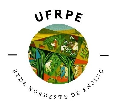Banca de DEFESA: DAVID GADELHA DA COSTA
Uma banca de DEFESA de DOUTORADO foi cadastrada pelo programa.STUDENT : DAVID GADELHA DA COSTA
DATE: 27/11/2023
TIME: 09:00
LOCAL: Videoconferência
TITLE:
Humanizing Scientific Education: a pedagogical proposal for the Education of Young, Adult and Elderly People based on Teaching by Research and the Freirean dialogical-problematizing perspective
KEY WORDS:
Humanizing Scientific Education; Science Teaching through Research; Freire's dialogical-problematizing perspective; Education of Young, Adult and Elderly People.
PAGES: 283
BIG AREA: Ciências Humanas
AREA: Educação
SUBÁREA: Ensino-Aprendizagem
SPECIALTY: Métodos e Técnicas de Ensino
SUMMARY:
In this thesis, entitled “ Humanizing Scientific Education: a pedagogical proposal for the Education of Young, Adult and Elderly People based on Teaching by Research and the Freirean dialogical-problematizing perspective”, aspects that intersect between the fields of Teaching by Research are privileged. , Paulo Freire's Pedagogy and the Education of Young, Adult and Elderly People (EPJAI). Its central objective was: to identify, characterize and systematize theoretical principles for proposing a pedagogical perspective of Humanizing Scientific Education for EPJAI, based on Teaching by Investigation and the Freirean dialogical-problematizing perspective. This is a theoretical research of a qualitative nature and of a bibliographic nature, based on the articulation of the references of teaching through investigation and the Freirean dialogical-problematizing perspective. Initially, possible pedagogical articulations between the aforementioned perspectives were described and analyzed, so that similarities, particularities and complementarities could be identified. The analysis of these approaches made it possible to structure the central theoretical assumptions of the pedagogical proposal defended in this study, namely: the conception of a social subject, non-neutral, epistemic and ontological; the notion of an investigative problem with humanizing potential; the conception of dialogue of knowledge and epistemic agency; and the notion of participation from scientific culture. In the second moment, didactic and pedagogical implications were discussed regarding the planning of investigative activities articulated with the Freirean dialogical-problematizing perspective. The deepening around these implications allowed the establishment of principles aimed at materializing the pedagogical proposal raised in this thesis, at the same time that it favored the structuring of didactic guidelines for the implementation of said proposal. The principles highlighted reflect the concern with the need to build an environment based on respect for the rights of subjects, the dialogue of knowledge and the development of students' epistemic agency; with the investigation of reality to identify limit situations and recognize the prior knowledge of young, adult and elderly students; with the pragmatic dimension of the investigative-humanizing problem, finding the intersection between limit situations synthesized into generating themes and science themes; and with the approach to scientific culture as a path to scientific-political literacy for EPJAI subjects. At the same time that the theoretical construct of this study contributed to the deepening of discussions around the conception of Humanizing Scientific Education and the teaching and learning processes in science in the context of EPJAI, it also allowed challenges to emerge to be faced, which could be quote: the culture of silence and self-worthlessness still marked by EPJAI students; the training of teachers in the area of natural sciences who tend to disregard discussions related to EPJAI; and the curricular propositions prepared without considering the subjects of the process, in addition to the absence of surveys of possible demands or topics to be worked on. In view of this, it is suggested that other studies may be concerned with validating the articulations proposed here, using empirical data to investigate the possibilities, limitations, needs and other aspects arising from the implementation of the pedagogical proposal presented.
COMMITTEE MEMBERS:
Presidente - EDENIA MARIA RIBEIRO DO AMARAL
Interna - GILVANEIDE FERREIRA DE OLIVEIRA
Interna - RUTH DO NASCIMENTO FIRME
Externo à Instituição - JOSÉ JACKSON REIS DOS SANTOS - UESB
Externo à Instituição - LUIZ GUSTAVO FRANCO SILVEIRA - UFMG




